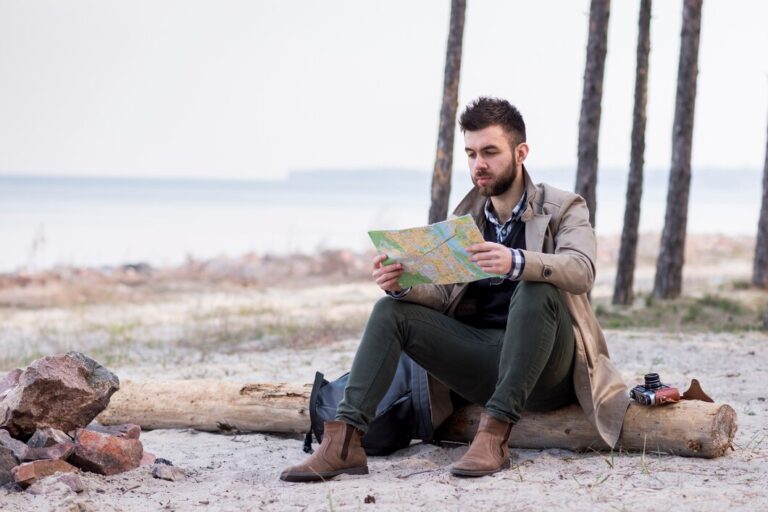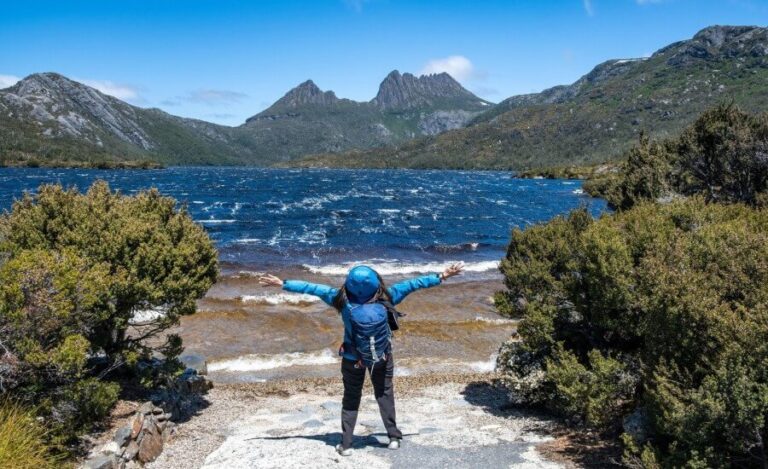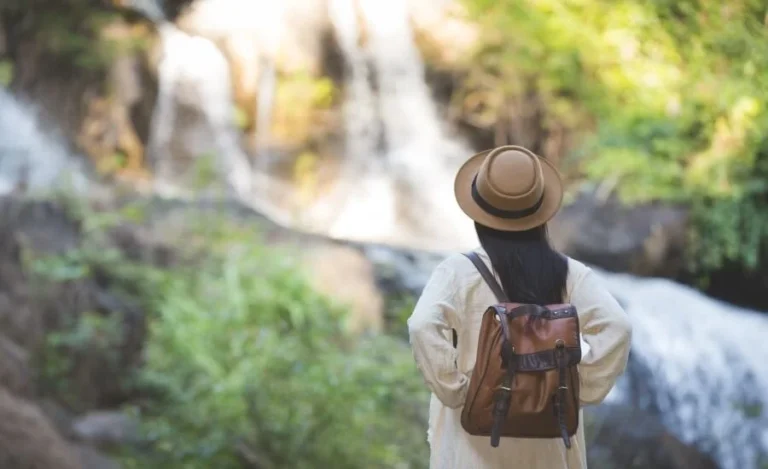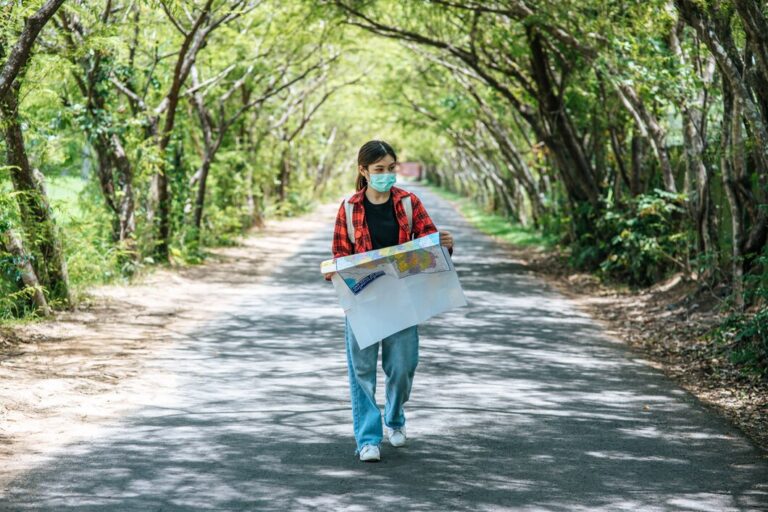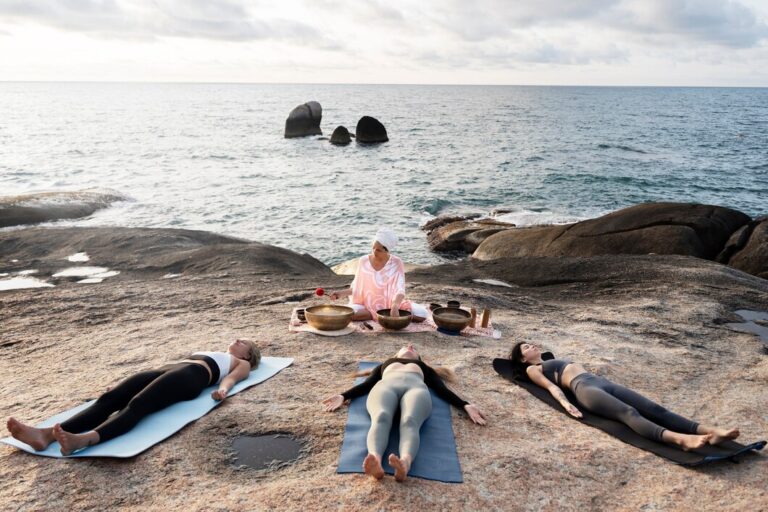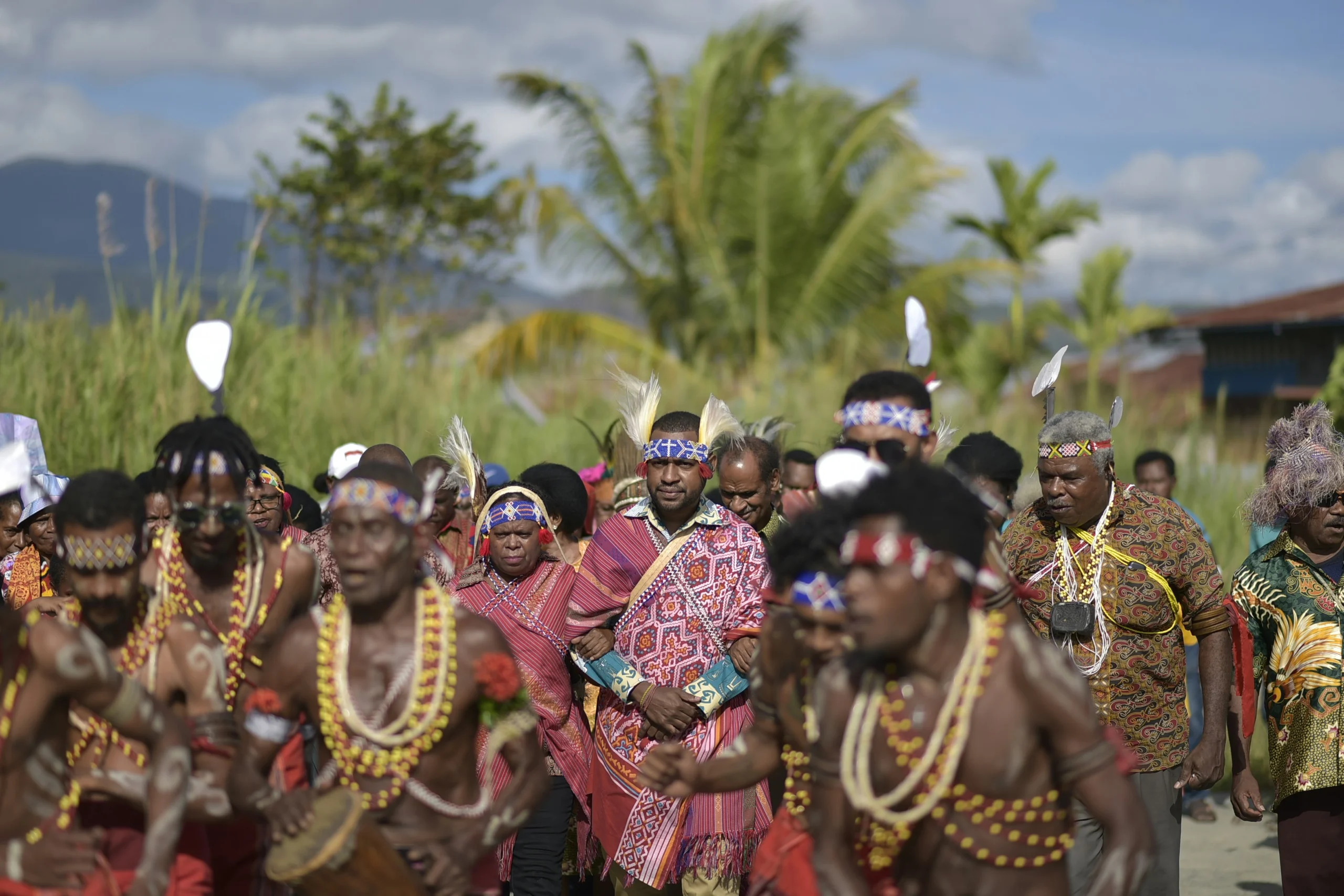
The allure of the unknown, the desire to connect with cultures vastly different from our own, is a powerful motivator for travel. Indigenous communities around the world, with their deep connection to ancestral lands, unique traditions, and diverse worldviews, often hold a particular fascination. Yet, this fascination carries immense responsibility. Historically, interactions between tourists and Indigenous peoples have too often been marred by exploitation, misunderstanding, and the perpetuation of harmful stereotypes. The postcard image of the ‘exotic tribe’ frequently masks a reality of intrusion, commodification, and disregard for cultural integrity and basic human rights.
A paradigm shift is urgently needed – moving away from tourism that consumes culture towards engagement rooted in respect, reciprocity, and genuine learning. This guide explores how we can approach Tribal Tourism: Explore & Respect Indigenous Cultures (or perhaps more accurately termed Ethical Indigenous Tourism or Community-Based Cultural Tourism) not as voyeurs, but as humble guests. It delves into how a mindful, conscious approach, prioritizing human connection over digital documentation, can help ensure that these encounters are empowering for host communities and truly enriching – in the right way – for travelers.
Defining Ethical Indigenous Tourism: Partnership, Not Paternalism

Ethical Indigenous tourism fundamentally differs from exploitative models. It is not about passively observing ‘primitive’ lifestyles or consuming ‘exotic’ experiences. Instead, it centers on Indigenous Peoples having control over how their culture and lands are shared with visitors. True ethical engagement is built on partnership, mutual respect, and ensuring tangible benefits flow directly back to the community according to their own priorities.
Key characteristics of ethical Indigenous tourism include:
- Community Ownership & Control: Tourism initiatives are ideally majority-owned, operated, and managed by the Indigenous community members themselves. They decide what aspects of their culture (if any) are shared, when, and how.
- Free, Prior, and Informed Consent (FPIC): Communities must give their free, prior, and informed consent to any tourism activities happening on their lands or involving their culture. This means they fully understand the potential impacts (positive and negative) and have the right to say no or set conditions.
- Authentic Representation: Experiences aim to provide genuine insights into contemporary Indigenous life, culture, and perspectives, avoiding staged performances or harmful stereotypes. It acknowledges that cultures are dynamic, not static relics.
- Direct & Equitable Benefits: Tourism revenue directly supports community well-being, cultural preservation, environmental stewardship, education, healthcare, or other priorities identified by the community. Benefits should be distributed fairly.
- Cultural Sensitivity & Respect: Visitors are expected to learn about and respect local customs, traditions, etiquette, and spiritual beliefs.
This model transforms tourism from a potentially extractive industry into a tool for cultural revitalization, economic empowerment, and fostering cross-cultural understanding on equal terms. It requires travelers to shift from a consumer mindset to one of a respectful, engaged learner.
Why Tread Lightly? Understanding the Risks and Responsibilities
Understanding the potential negative impacts of poorly managed or unethical tourism involving Indigenous communities is crucial for motivating responsible choices. When tourism is imposed from the outside or prioritizes profit over people, the consequences can be severe:
- Commodification & Stereotyping: Sacred rituals, traditional clothing, or cultural practices can be reduced to mere performances or souvenirs for tourist consumption, stripping them of their meaning and reinforcing harmful stereotypes. This can lead to communities feeling forced to ‘act’ in ways expected by tourists.
- Economic Leakage: Often, the majority of money spent by tourists goes to outside tour operators, hotels, or intermediaries, with very little reaching the host community itself, leaving them dependent yet impoverished.
- Intrusion & Disruption: Tourists entering homes without permission, taking photos without consent, disregarding sacred sites, or disrupting daily life and traditional activities can cause significant stress and offense.
- Environmental Degradation: Increased visitor numbers can strain local resources (water, waste management) and damage sensitive ecosystems upon which communities depend for their livelihood and cultural identity.
- Health Risks: Especially for remote or recently contacted communities, visitors can introduce diseases to which people have little or no immunity, with potentially devastating consequences. Visits to uncontacted or recently contacted peoples are extremely dangerous and unethical.
- Erosion of Culture & Language: Pressure to conform to tourist expectations or prioritize tourism income over traditional practices can weaken cultural transmission and language use over time.
Recognizing these risks underscores the traveler’s responsibility to do thorough research, choose ethical options, and approach any interaction with utmost care and humility. Your holiday should not come at the cost of another community’s dignity, well-being, or cultural integrity.
The Path of Respect: Guiding Principles for Mindful Engagement

Engaging respectfully requires more than just good intentions; it requires conscious effort and adherence to ethical principles. These act as a compass for navigating cross-cultural encounters mindfully:
- Seek Consent Always: This is non-negotiable. Always ask permission before taking photographs or videos of people, their homes, or ceremonies. Understand that consent must be informed – explain how images might be used, especially if sharing online or commercially. Respect a ‘no’ immediately and graciously. Ask permission before entering homes or specific community areas.
- Practice Humility & Listening: Approach the experience as a learner, not an expert. Recognize that your cultural background shapes your perspective. Listen more than you speak. Be open to understanding different worldviews without judgment. Value the knowledge and perspectives shared by your hosts.
- Prepare & Educate Yourself: Before your visit, research the specific community’s history, culture, social structure, contemporary issues, and any visitor guidelines they may have published. Learning a few basic words in the local language shows significant respect. Understand the colonial history and its ongoing impacts.
- Observe & Respect Local Etiquette: Pay attention to social customs, appropriate dress, greetings, and interactions between genders or age groups. If unsure, politely ask your guide or host. Be mindful of noise levels and behaviour, especially near sacred sites or during ceremonies.
- Ensure Reciprocity & Fair Benefit: Choose tours or experiences where your money directly supports the community (community-run enterprises are ideal). Purchase authentic crafts directly from artisans at fair prices. Consider if there are non-monetary ways to contribute meaningfully, if appropriate and requested (e.g., sharing a skill respectfully, only if invited). Avoid giving random handouts, which can create dependency; support structured community projects instead.
- Minimize Your Environmental Footprint: Respect the natural environment that sustains the community. Do not litter (pack it out!), avoid using harmful chemicals (sunscreens, repellents – seek natural alternatives), stay on designated paths, and do not disturb wildlife or remove natural objects.
Underlying Principle: Treat your hosts as equals, with the same respect you would expect in your own home and community.
Presence & Respect: The Power of Unplugged Engagement

In the context of engaging with Indigenous cultures, choosing to disconnect from technology becomes a profound act of respect and presence. Minimizing reliance on phones and cameras allows for deeper, more authentic human connection and observation.
Undivided Attention: Putting your phone away signals that your attention is fully with your hosts and the present moment. It allows you to listen deeply to stories, observe demonstrations, and participate in activities without the constant digital pull. True listening is a gift you offer.
Beyond the Lens: While photography can be done respectfully with explicit consent, resist the urge to experience the entire visit through a viewfinder or screen. Prioritize direct, embodied experience. Notice the nuances of expression, the details of craftsmanship, the atmosphere of a place – things often lost when solely focused on capturing an image. Does the memory live more vividly in your heart or on your hard drive?
Facilitating Genuine Connection: Without the barrier of a device, spontaneous conversations and connections happen more naturally. You rely on observation, gestures, smiles, and perhaps your phrasebook, fostering more direct human interaction. This vulnerability can lead to more meaningful exchanges than mediated communication through translation apps (though these can be useful tools if used sparingly and respectfully).
Mindful Observation: Being unplugged sharpens your natural observation skills. You notice subtle cues in body language, the rhythm of daily life, the intricate relationship between the community and their environment. This deep observation fosters understanding far more effectively than passively consuming online information about the culture.
Respecting Sacredness: In many Indigenous cultures, certain times, places, or ceremonies hold deep spiritual significance where technology is inappropriate or forbidden. Being mindfully present and device-free ensures you honour these boundaries without needing to be constantly reminded.
Finding Authentic Opportunities: Choosing Responsible Operators & Communities

Navigating the world of Indigenous tourism requires careful research to ensure your visit is ethical and genuinely benefits the host community. Here’s how to find responsible opportunities:
- Prioritize Community-Led Initiatives: Look for tourism experiences that are owned, managed, and operated by the Indigenous community itself. This is the gold standard, ensuring control and direct benefits. Search for terms like “community-based Indigenous tourism,” “[Community Name] tourism enterprise,” or check directories from reputable Indigenous tourism associations (like WINTA – World Indigenous Tourism Alliance, or national/regional associations like ITAC in Canada or Indigenous Tourism BC).
- Research Tour Operators Thoroughly: If using a tour operator, investigate their relationship with the community. * Do they explicitly state ethical guidelines and commitment to FPIC? * How long have they worked with the community? Is it a genuine partnership? * Can they clearly explain how the community benefits financially and culturally? * Do they employ local Indigenous guides? * Do reviews mention respectful interactions and community benefit?
- Look for Certifications & Affiliations: While not foolproof, certifications related to sustainable or ecotourism, or membership in responsible tourism organizations, can be positive indicators. Check affiliations with recognized Indigenous tourism bodies.
- Ask Direct Questions: Don’t hesitate to ask operators or communities (if contacting directly is appropriate) about their policies, benefit-sharing, consent processes, and visitor guidelines. Transparency is key.
- Be Wary of Red Flags: * Vague descriptions focusing on ‘exotic’ or ‘primitive’ aspects. * Lack of information about community benefit or involvement. * Emphasis on staged performances or photo opportunities without context of consent. * Tours visiting communities without prior arrangement or permission. * Very cheap tours (suggesting lack of fair payment). * Operators resistant to answering ethical questions. * Any tours offering visits to uncontacted or recently contacted peoples (AVOID these entirely).
Remember: Genuine experiences often involve smaller groups, slower paces, and focus on learning and participation rather than passive spectating.
More Than a Visit: Integrating the Experience & Supporting Long-Term

An ethical engagement doesn’t end when you leave. The experience should ideally lead to ongoing respect, understanding, and potentially, continued support.
- Reflect on Your Experience: Take time afterwards to process what you learned and experienced. Journal about your reflections. Consider any biases you encountered in yourself. How has the experience shifted your perspective?
- Share Responsibly: If you share photos or stories (always ensuring prior consent was given for any identifiable images/stories), do so thoughtfully. Avoid perpetuating stereotypes. Provide context. Emphasize what you learned and the importance of respect. Use your platform to amplify community voices or promote ethical tourism practices, rather than just showcasing ‘exotic’ travels.
- Provide Constructive Feedback: If appropriate, provide respectful feedback to the community or tour operator about your experience, highlighting positive aspects and areas for potential improvement regarding ethical practices.
- Continue Supporting: If you purchased crafts, cherish them and share the artisan’s story (if known). Consider ongoing support for community projects or Indigenous rights organizations if you feel a strong connection and have researched reputable avenues for doing so.
- Apply Learnings: Integrate the principles of mindful observation, listening, humility, and respect learned during your visit into your daily life and future travels.
Common Concerns & Solutions for Ethical Cultural Engagement

Navigating ethical Indigenous tourism naturally brings concerns. Addressing them proactively helps ensure a positive and respectful experience for everyone.
Concern 1: I’m afraid of saying or doing the wrong thing and causing offense.
- Solution: Humility is key. Acknowledge you are a guest and learner. Do your pre-trip research on basic etiquette. Listen more than you speak. Observe local interactions. If unsure, politely ask your guide or host. Apologize sincerely if you make a mistake. Genuine respect and willingness to learn go a long way.
Concern 2: How can I be sure my money is actually benefiting the community?
- Solution: Prioritize community-owned and operated enterprises. Ask tour operators direct questions about their benefit-sharing model. Buy crafts directly from artisans. Look for transparency. Be wary of vague promises; seek concrete examples of how tourism funds are used for community projects.
Concern 3: Are the experiences ‘authentic’ or just performed for tourists?
- Solution: Seek experiences focused on genuine cultural exchange, learning, and participation, rather than passive shows. Community-led tourism is often more authentic as the community controls the narrative. Authenticity also lies in understanding contemporary Indigenous life, not just seeking a romanticized past. Manage your expectations – culture is dynamic.
Concern 4: How do I communicate effectively with language barriers?
- Solution: Learn basic greetings and phrases. Carry a phrasebook. Use gestures respectfully. A smile is universal. Be patient. Sometimes, shared silence or participating in an activity together communicates more than words. Rely on local guides provided through ethical channels.
Concern 5: Isn’t it better to just avoid visiting Indigenous communities altogether to prevent harm?
- Solution: While avoiding exploitative tourism is essential, completely avoiding communities that want to engage in ethical, self-determined tourism can deny them valuable economic opportunities and the chance to share their culture on their own terms. The key is choosing wisely and respectfully, ensuring the community is in control and benefits directly. Support their initiatives if they exist.
Before You Go Checklist: Ethical Indigenous Culture Engagement

Prepare for a journey of respectful learning with this checklist:
- Deep Research: Learn about the specific Indigenous community: history, culture, contemporary life, visitor protocols, land rights context.
- Choose Ethical Operator/Experience: Verify community involvement, benefit sharing, consent practices. Prioritize community-led options. Book well in advance if required.
- Learn Basic Etiquette: Understand greetings, dress codes, gift-giving customs (often discouraged unless specifically arranged), photography rules, sacred site protocols.
- Learn Basic Phrases: Master greetings, ‘please,’ ‘thank you,’ ‘yes,’ ‘no,’ ‘I don’t understand’ in the local language.
- Pack Respectfully: Choose modest clothing appropriate for the local culture and climate. Pack eco-friendly toiletries/sundries.
- Prepare Gifts (Only if appropriate/advised): Avoid random handouts. If gifts are culturally appropriate and suggested by your host/operator, choose useful items requested by the community, purchased locally if possible. Often, your respectful presence and economic support through the official channels are the best ‘gifts’.
- Camera/Phone Ethics: Understand consent rules thoroughly. Be prepared to keep devices away often. Plan how you will use any photos/videos respectfully afterwards.
- Mindset Check: Cultivate humility, openness, patience, and a genuine desire to learn. Set intentions for mindful listening and observation. Manage expectations – this is about connection, not just sightseeing.
- Health & Safety: Ensure necessary vaccinations/medications. Pack a basic first-aid kit. Be aware of local health considerations.
- Leave No Trace: Commit to minimizing your environmental impact. Pack out everything you pack in.
Travel as Learning, Connection as Responsibility

Engaging with Indigenous cultures through travel offers an unparalleled opportunity for profound learning and connection, challenging our perspectives and enriching our understanding of human diversity and resilience. However, this opportunity comes with a significant ethical weight. Ethical Indigenous tourism demands a fundamental shift away from consumption towards contribution, from looking towards listening, from taking towards reciprocity. It requires us to be mindful not only of the external environment but also of our internal landscape – our motivations, biases, and the impact of our presence.
By choosing community-led initiatives, practicing deep respect, seeking consent, listening with humility, and embracing mindful, unplugged presence, we can strive to ensure that tourism becomes a force for empowerment and cultural continuity, rather than exploitation. The journey involves careful preparation, ongoing reflection, and a commitment to treading lightly on both lands and cultures.
Are you willing to embrace the responsibility that comes with cross-cultural exploration? Will you commit to seeking out ethical opportunities, prioritizing respect over snapshots, and allowing yourself to be transformed by genuine connection rather than superficial encounters? Let your travels be guided by humility, your interactions by respect, and your memories be filled not just with sights seen, but with understanding gained. The most meaningful journeys are those undertaken with an open heart and a conscious mind.
